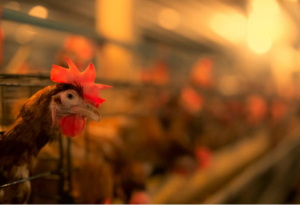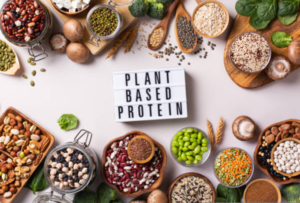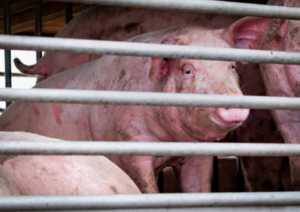How Dietary Choices Impact Ethical Treatment

The global shift towards ethical living has brought a profound and necessary change in how we view our relationship with animals. While the concept of veganism has been around for decades, it has gained significant momentum in recent years, reflecting a growing awareness of the ethical implications of our dietary choices. In this blog post, we will explore the vital intersection of veganism and animal welfare, shedding light on how the decision to embrace a plant-based lifestyle can have a profound impact on the ethical treatment of animals.
The Ethical Dilemma: Our Treatment of Animals
Our relationship with animals has long been fraught with an ethical dilemma, one that forces us to confront how we treat and interact with the creatures we share our planet with. The treatment of animals in various industries, particularly in the production of meat, dairy, and other animal-derived products, has been a source of growing concern and discomfort.
One of the most troubling aspects of our treatment of animals is the prevalence of factory farming, where animals are often subjected to overcrowded, unsanitary, and inhumane conditions. These facilities prioritize profit margins over the welfare of the animals, leading to a myriad of ethical issues. Pigs, cows, and chickens are crammed into small spaces, often unable to move or exhibit natural behaviors. This leads to a stressful and painful existence, devoid of the most basic comforts.
For animals in the meat industry, the journey typically ends in a slaughterhouse. These facilities are designed to process animals as efficiently as possible, often prioritizing speed over humane treatment. The treatment of animals in slaughterhouses has been a subject of widespread concern. Practices such as stunning, where animals are rendered unconscious before slaughter, can be inconsistent and may not always guarantee a painless end. This has raised questions about the morality of our food choices and how they intersect with animal welfare.
The ethical concerns extend to the dairy and egg industries. In the pursuit of high production volumes, cows are often subjected to repetitive cycles of artificial insemination and calf separation, causing immense suffering and distress. Male chicks in the egg industry often face a fate of culling, where they are euthanized shortly after birth, as they are not deemed profitable. These practices highlight the complexity of animal welfare issues within the food industry.

The Emergence of Veganism
The emergence of veganism is a testament to humanity’s capacity for compassion and its willingness to reevaluate long-held beliefs and traditions. Veganism, far more than just a dietary choice, is a way of life that embodies empathy and a profound commitment to reducing harm to animals. Its growing popularity in recent years has reflected a broader cultural shift toward ethical living and a deepening awareness of the ethical implications of our dietary choices.
Rooted in Compassion
At its core, veganism is rooted in compassion. It represents a commitment to ensuring that animals are not subjected to unnecessary harm or suffering for our convenience or palate. This lifestyle extends beyond what we put on our plates; it encompasses choices that impact animals’ lives and welfare in numerous ways.
The Dietary Shift
The most visible aspect of veganism is the dietary shift. Vegans conscientiously avoid all animal-derived products, including meat, dairy, eggs, and honey. This decision, while personal, carries profound ethical weight. It demonstrates a belief that no sentient being should be subjected to the conditions of factory farming or the painful process of slaughter for human consumption.
Beyond Food: Embracing a Holistic Ethos
While diet forms a significant part of veganism, the ethos extends to other facets of life. Vegans also refrain from using animal-derived products, such as leather, fur, and cosmetics tested on animals. By doing so, they align their actions with their values, demonstrating a commitment to animal welfare that reaches beyond the dinner table.
Animal Liberation
The philosophy of animal liberation is closely intertwined with veganism. Advocates of animal liberation believe that animals deserve to be liberated from human exploitation. This means rejecting practices that prioritize profit over the well-being of animals. Veganism, as a manifestation of this philosophy, aims to disrupt industries profiting from animal suffering.
Challenging the Status Quo
Vegans challenge the status quo by questioning societal norms that have normalized animal exploitation. They recognize that cultural traditions and habits are not justification for causing harm to sentient beings. Veganism, in essence, questions the morality of such traditions and stands as a powerful statement against the mistreatment of animals.

The Impact of Veganism on Animal Welfare
The shift to a vegan lifestyle has tangible and positive effects on animal welfare:
The adoption of a vegan lifestyle exerts a tangible and far-reaching influence on animal welfare. By consciously choosing plant-based alternatives, individuals contribute to reducing harm to animals and catalyzing improvements in their treatment. The impact of veganism on animal welfare extends across various facets, underlining the profound and positive transformation it brings.
Reduced Demand for Animal Products
One of the most immediate and direct impacts of veganism is a reduction in the demand for animal products. As more individuals choose plant-based diets, there is a substantial decrease in the number of animals raised, confined, and ultimately slaughtered for food. This reduction directly correlates with fewer animals subjected to the often inhumane conditions of factory farming.
Animal Liberation: A Commitment to Freedom
Veganism aligns with the philosophy of animal liberation. Advocates of this philosophy believe that animals, like humans, deserve to be free from exploitation. By adopting a vegan lifestyle, individuals actively support the liberation of animals from industries that profit from their suffering. This perspective reinforces the belief that all animals have the right to live without unnecessary suffering.
End to Animal Testing: A Quest for Compassion
Many vegan products, from cosmetics to cleaning supplies, are labeled as cruelty-free and not tested on animals. The growing demand for such products has led to a decrease in animal testing, reflecting a shift in consumer values. This development is not only a testament to the ethical impact of veganism but also a vital step towards reducing unnecessary suffering and promoting ethical alternatives.
Reduced Environmental Impact: A Holistic Approach
Veganism, while primarily rooted in compassion for animals, also contributes to a reduction in the environmental harm caused by animal agriculture. Animal agriculture is a leading cause of deforestation, greenhouse gas emissions, and resource depletion. By shifting away from animal products, vegans actively work to combat these issues. This is an important aspect of ethical living, demonstrating a commitment not only to animals but to the broader ecological balance of the planet.
Holistic Health and Personal Well-Being
Veganism isn’t just about animal welfare; it’s also about personal health and well-being. A plant-based diet is rich in fruits, vegetables, grains, and legumes, providing essential nutrients and promoting a healthier lifestyle. Many vegans experience a range of health benefits, from increased energy and improved digestion to glowing skin and enhanced mental clarity. This confluence of ethical and personal well-being underscores the multifaceted impact of veganism on the lives of individuals and animals alike.
The Ripple Effect: Advocacy and Education
The impact of veganism extends beyond personal dietary choices. Vegan individuals often become advocates for animal welfare. They engage in grassroots movements, support organizations that rescue animals from abusive situations, and use their voices to raise awareness about cruelty within the animal industry. By sharing their knowledge and experiences, they inspire more individuals to consider the ethical implications of their food and lifestyle choices.
Changing the Narrative: A Shift in Industry Practices
As the demand for vegan products and ethical consumption continues to rise, industries are adapting to meet this new ethical landscape. Companies now offer vegan options, cruelty-free products, and sustainable choices, thus reflecting the change in consumer preferences. These changes in industry practices indicate a shift toward more humane and ethical approaches, responding to the growing concern for animal welfare.

The Domino Effect: Advocacy and Education
The impact of veganism extends beyond personal dietary choices. Vegan individuals often become advocates for animal welfare. They engage in grassroots movements, support organizations that rescue animals from abusive situations, and use their voices to raise awareness about cruelty within the animal industry.
Vegans also play a crucial role in educating others about the ethical consequences of their dietary choices. By sharing their knowledge and experiences, they inspire more individuals to consider the ethical implications of their food and lifestyle choices.
The increased demand for vegan products and ethical consumption has prompted changes within various industries. As more people choose plant-based alternatives, companies are adapting by offering vegan options, cruelty-free products, and sustainable choices. These changes, in turn, reduce the overall demand for animal-derived products and encourage more humane practices.
The intersection of veganism and animal welfare not only benefits animals but also contributes to personal health. A plant-based diet, rich in fruits, vegetables, grains, and legumes, is associated with lower risks of chronic diseases, improved heart health, and better weight management.
By prioritizing plant-based options, vegans often experience a range of health benefits, from increased energy and improved digestion to glowing skin and enhanced mental clarity.
In the ever-evolving landscape of ethical living, the intersection of veganism and animal welfare stands as a beacon of hope for a kinder, more compassionate world. By embracing veganism, individuals make a conscious choice to minimize harm to animals, reduce their environmental footprint, and embrace a healthier lifestyle.
The impact of this choice extends far beyond individual dietary habits. It has the potential to reshape industries, challenge the status quo, and inspire others to join the movement towards a more ethical and compassionate world where the welfare of animals is a top priority. Every vegan meal is a statement of solidarity with animals, a pledge to reduce suffering, and a step toward a brighter, more humane future for all living beings.

